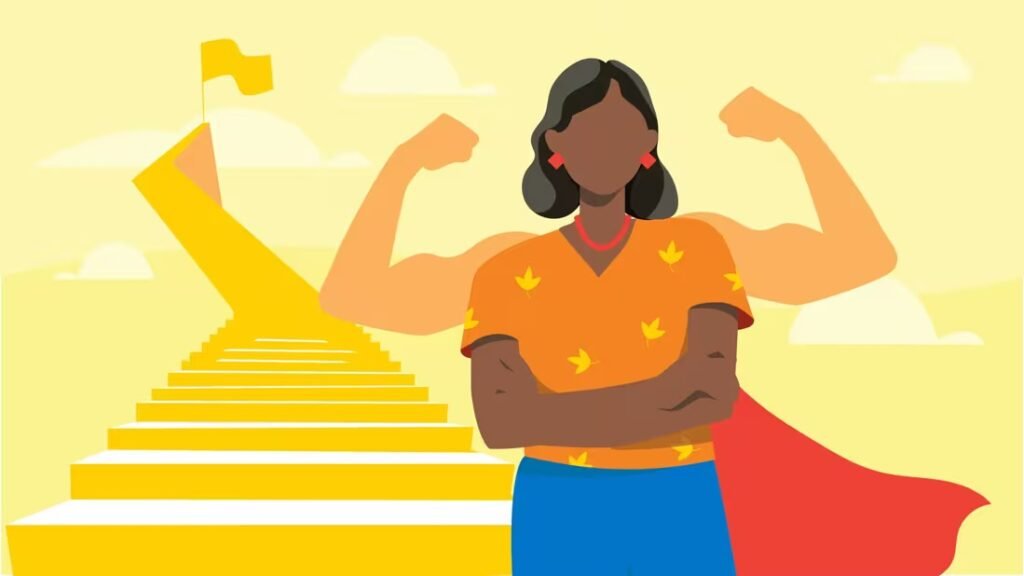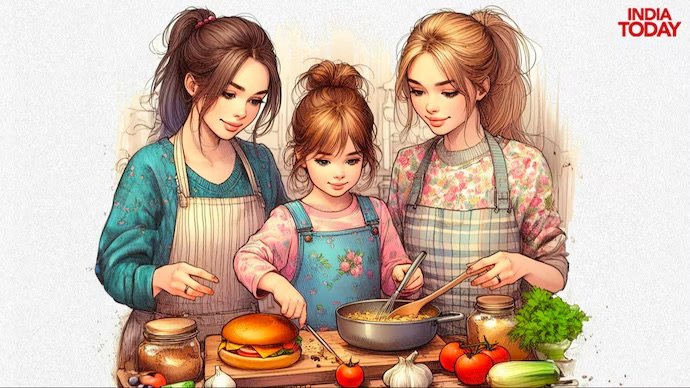Elder Daughter Syndrome: The Invisible Pressure of Being the First in Your Family
If you are the eldest daughter in an Indian household, chances are you’ve heard lines like “You’re the elder one, you should know better” or “Take care of your younger sibling, they follow your example.” It sounds harmless, even affectionate, but over time it becomes a script you can’t escape.
The “elder daughter” often grows up as a second mother, the dependable one, the peacemaker, the mature one — sometimes at the cost of her own childhood. This invisible phenomenon is what many now call Elder Daughter Syndrome.

Bollywood may never have used the term “Elder Daughter Syndrome”, but time and again, it has given us characters who carry the invisible weight of being the eldest girl in the family. Their stories are often told through small gestures the way they silence their own needs, keep the family together, or quietly shoulder burdens no one else notices.
Take Kajol in Kabhi Khushi Kabhie Gham. As Anjali, she’s not just a wife or daughter-in-law — she’s the emotional anchor of her family. She soothes, mediates, and bends herself into being the perfect connector between worlds. How many eldest daughters know what it feels like to always “hold it all together,” no matter what storm is raging?
Then there’s Priyanka Chopra as Ayesha in Dil Dhadakne Do. On paper, she has it all — intelligence, success, charm. But within her family, she’s still seen as the dutiful daughter who must comply, who must not disrupt tradition. She represents the countless eldest daughters who excel everywhere, yet remain unseen in their own homes.
STRENGTH THAT LEAVES SCARS
On the outside, elder daughters are resilient, ambitious, and emotionally intelligent. But under the surface lies a quiet exhaustion. The pressure to “have it all together” can leave scars of people-pleasing, suppressed emotions, and a fear of failure.

Here’s the hard truth: elder daughters don’t need to stop being strong , they need permission to be human.
That starts with small acts of rebellion against expectations:
Choosing rest over responsibility once in a while.
Saying no without carrying guilt.
Creating spaces where they are not the caregiver, but the cared for.
Reminding themselves that being loved isn’t about being useful.
As Rani Mukerji in Hum Tum showed us — you can be nurturing and dependable, but still choose yourself.
FINAL TAKEAWAY
“Elder Daughter Syndrome” isn’t just a catchy phrase — it’s a lived reality for countless women whose childhoods were shaped by unspoken duty. Bollywood gives us glimpses, but in everyday homes across India, the story plays out quietly, invisibly.
To every elder daughter reading this: you don’t always have to be the strongest person in the room. You are more than the responsibilities you were handed. Take off the superhero cape once in a while — someone else can hold the fort.
Found this helpful? Subscribe below for more



